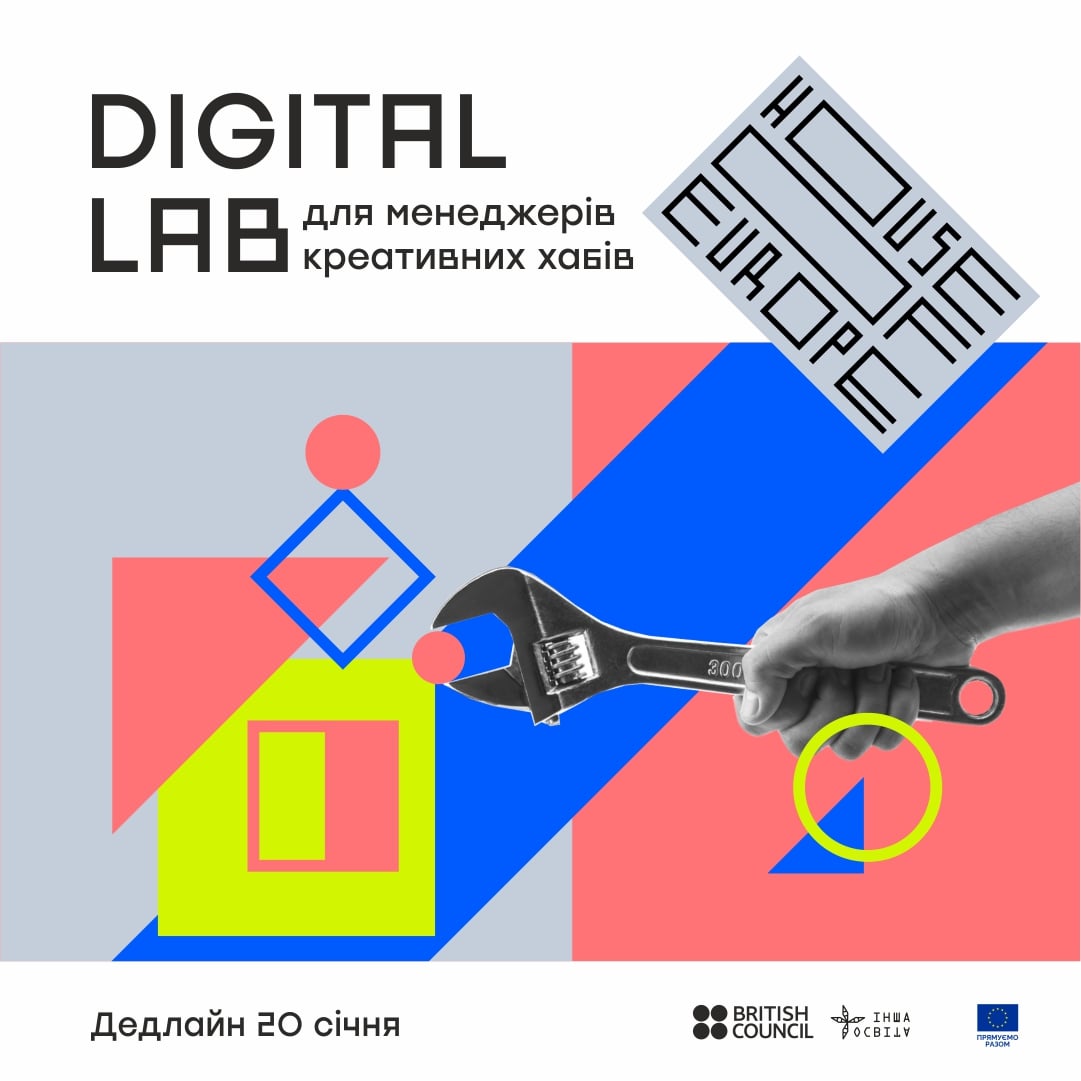Digital Lab. Creative Hubs Managers

Funding: British Council Ukraine
Partners: British Council Ukraine
Duration: 2020 — 2022
Coordinator: Maria Tymoshchuk
Contact: office@insha-osvita.org
«Digital Lab. Creative Hubs Managers» is a platform for sharing practices in working with physical or virtual spaces, created by the British Council in Ukraine. Over the course of three years, we have held three waves of Digital Lab. The platform aims to bring together managers of Ukrainian hubs to search for solutions for effective work during and after the pandemic.
The main focus of Digital Lab includes:
- Creating a space for exchanging experiences and jointly searching for practical solutions
- Familiarizing participants with successful cases of creative hubs in EU countries, the UK, and Ukraine
- Building connections between program participants
- Creating a high-quality and meaningful format for online interaction.
We held the first online Digital Lab program in the fall of 2020, six months after the start of the pandemic. Its main focus was the forced adaptation of physical spaces and formats of interaction in communities under quarantine restrictions around the world. Participants communicated with their colleagues from Ukraine and the EU, exchanging experience in managing physical spaces in the new reality.
Key themes of the 2020 sessions:
- How to ensure the safety of physical spaces?
- Should there be a reduction in offline activities, and how should achieve the balance between offline and online activities?
- How to remain competitive online, how to develop a unique proposition, and how to monetize it?
- How to strengthen relationships and loyalty within one’s community?
After the first lab, there was a clear understanding that such a program should be sensitive and adaptable to the fluidity and variability of the post-pandemic world. The focus of the second Digital Lab, held in the spring of 2021, was on the anti-fragility of creative hubs. Together, the group of participants explored what supports help creative spaces stay afloat in a world that is stuck between online and offline.
Key themes of the 2021 sessions:
- Old/New Reality. Transformations of Creative Hubs over the year of the pandemic
- How creative hubs can work with online and offline communities
- Sources of sustainability in times of instability: crowdfunding and other co-creation formats
- Solid partnerships: local, national, international cooperation.
Over the course of two months, managers from 22 Ukrainian creative hubs in Vinnytsia, Dnipro, Zhytomyr, Zaporizhia, Zvenyhorodka, Kyiv, Mariupol, Mykolaiv, Odesa, Romny, Ternopil, and Kharkiv looked for new solutions for their spaces, shared experiences, and contributed jointly to the development of the creative industries in Ukraine.
During the program, 16 cases of participants were considered, and 18 hours were spent with the support of 6 facilitators from Insha Osvita and 7 speakers from the UK, Denmark, Italy, and Ukraine.
The third edition of the lab in 2022 was based on the «Guide for Leaders of Creative Hubs» (https://cutt.ly/ZYMUFaL). It was translated into Ukrainian for the first time specifically for the program’s participants.
This manual is a set of professional tools developed by the British innovation agency Nesta. It was born as a result of the Creative Hubs Academy program.
The key topics of the 2022 sessions were:
- Managing your hub
- Profiling your audience and shaping your offer
- Measuring impact
- Business model canvas.
The training took place online from February 9th to 18th inclusive. Over six sessions, our participants from 16 cities and towns across Ukraine gained knowledge that will help them analyze the activities of their creative hub. Also, they exchanged experiences with representatives of other creative spaces in the EU, the UK, and Ukraine. There were also practical homework assignments, a lot of interaction with colleagues, and access to the House of Europe alumni community upon completion of the training.
The «Digital Lab. Creative Hubs Managers» program was implemented by the British Council Ukraine within the House of Europe program with the organizational support of the NGO Insha Osvita.




